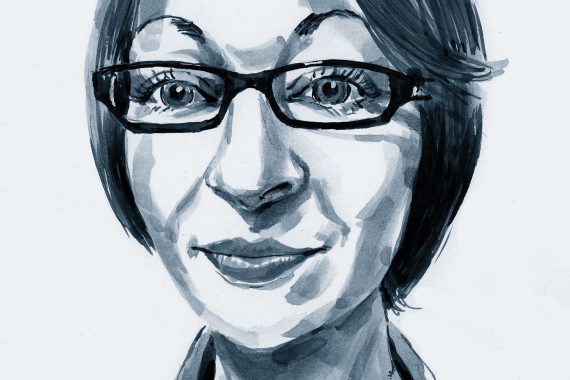Lessons to learn from the junior doctors

I can’t be the only one who has been watching the junior doctor protests, strike ballot and negotiations, while thinking (Dodgy cockney accent) ‘Go on my son!’
I’m writing this as negotiations have resumed and strike action is postponed. We don’t know what – if any – ground the Government will give, and the BMA is taking a gamble by going back to the table.
But what is clear is that having such a massive show of unity behind industrial action by junior doctors has put negotiators in a position to push for real concessions. No doctor wants to strike. But the threat of this ensured that their voices were heard.
Whatever the outcome, the juniors have shown us that the medical profession still has a few tricks up its sleeve. Listen up – it will be us next. What can we learn?
1. You need a figure head. Or two. Not only has the JDC had the far-from-junior Obstetric Registrar Dr Johann Malawana as its chair – his unflappable calm pervading all public appearances and interviews – he has also risen above personal attacks, tabloid smears and the most gutter-level journalism Newsnight has seen for some time. There have also been several ‘unofficial’ leaders, holding no formal elected position but working alongside Dr Malawana to deliver a message straight from juniors to the press and public. This combination has let the BMA get on with the sometimes restrictive business of following Union legislation, while the grassroots has had the freedom to speak plainly and do what needs to be done. The Twitter #Istandwithjohann has been a formidable display of unity.
2. Use social media. within hours of the announcement of a strike ballot beginning, a brand new Facebook group sprang up and gathered almost 60,000 junior doctors as members. A clear Twitter campaign co-ordinating efforts across the country, and the use of consistent hashtags as part of this, meant the press knew what to look for. Several people have reflected that had social media been as big during the MTAS debacle, the juniors at that time may well have won the day. If you aren’t on Twitter and Facebook, get on there now. They are powerful tools.
3. Show unity. This hasn’t come easily. There has been tireless local and national campaigning from those leading the BMA campaign, and those working alongside but not within the union. Pushing for a double yes vote in the strike ballot has given the BMA the mandate it needed to re-enter negotiations in a strong position. But don’t make the government’s mistake of thinking this is all random. The juniors have been their own PR department. Literally hundreds of Facebook, email and Whatsapp groups have been co-ordinating the message, the interviews, the key lines to be repeated by any junior doctor speaking to the press. Individual stories and blogs have been written, proof read, approved or shelved. Personal crusades and off message spouting has been firmly discouraged. Stories on the front page of right wing papers, taken from moles within some of these groups, have served as a somber reminder that big brother is watching. But after a steep learning curve, they have it nailed. There are disagreements, but they are behind closed doors. The message is unity, and the almost unanimous strike ballot result confirms that. This could be the hardest thing for us to emulate.
4. Be intelligent. I have been amazed to witness the collective might of such a highly qualified profession in action. We underestimate ourselves again and again. The juniors did the same to start with, but feeling they had nothing to lose has led them to push the boundaries. They reversed the spin of research papers showing a link between spinning that the NHS isn’t open 7 days, and resulting delayed presentation and mortality, with stories of the ‘Hunt Effect’ deterring patients from accessing care at weekends. Junior doctors going out into towns and cities to speak directly to the public via #meetthedrs has galvanised public support. Engaging with patient groups, asking for GP support and input, listening but not being afraid to act. It has been incredible.
We don’t know how this will all end, what I do know is we will face this soon; the Government is already talking about putting seven-day access into the GP contract. But there are valuable lessons to learn from the junior doctors, and I hope valuable allies we should be working with.
Let’s hope you can teach the old dogs new tricks.
Dr Zoe Norris is a GP in Hull
Pulse October survey
Take our July 2025 survey to potentially win £1.000 worth of tokens










